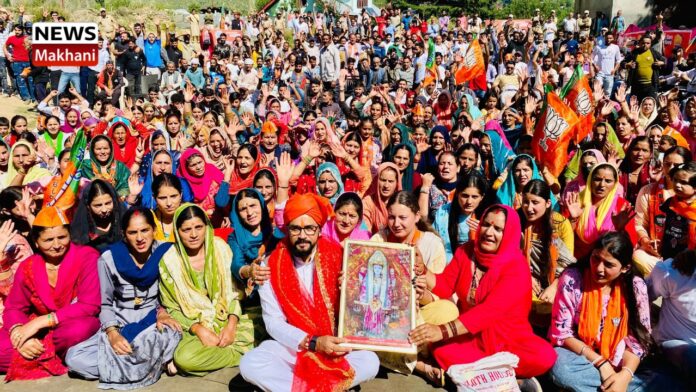Jammu, Sep 16, 2024
Former Union Minister Anurag Thakur said today that due to the dynastic politics of 3 families kept the people of J&K away from the national mainstream from the rest of the country for 75 years.
“The people here were deprived of the constitutional rights that were available to citizens in other parts of India,” Thakur said, while addressing election rallies at Kishtwar, Nanak Nagar, Bishnah and Nai Basti.
“On August 5, 2019, Prime Minister Narendra Modi abrogated Article 370, changing the fate of the deprived sections of Jammu and Kashmir,” he said.He said that people of J&K were disconnected from the nation, but after the BJP came to power, the region’s destiny began to change.
Thakur said that when the BJP came to power in 2014, it took decisive steps to eliminate the biggest curse imposed by Congress in the form of Article 370. Finally, on August 5, 2019, this curse was eradicated forever.He emphasized that Article 370 blocked development, reservation, and basic facilities, but instead, it fostered separatism, terrorism, and stone pelting.
He said criticized the three families Abdullahs, Muftis and Gandhis for failing to provide essential services, despite being in power for decades. The Valmiki community was brought to Jammu and Kashmir for sanitation work, yet they were denied education and reservation, barring them from reaching higher positions, he said.
Thakur also highlighted how the rights of the Gujjar-Bakarwal community were ignored, with no reservation provided to them in the Assembly. Furthermore, refugees from West Pakistan were denied the right to vote, he said.
He also pointed out that there has been an investment of ₹25,000 crores so far, and an additional ₹75,000 crores will be brought in J&K.
Thakur discussed several government schemes, including the notable Jal Jeevan Mission. He urged the people to vote for the BJP in large numbers to continue the development process and prevent the resurgence of separatism, terrorism, and stone-pelting, aiming to make Jammu and Kashmir a developed state.

 हिंदी
हिंदी






